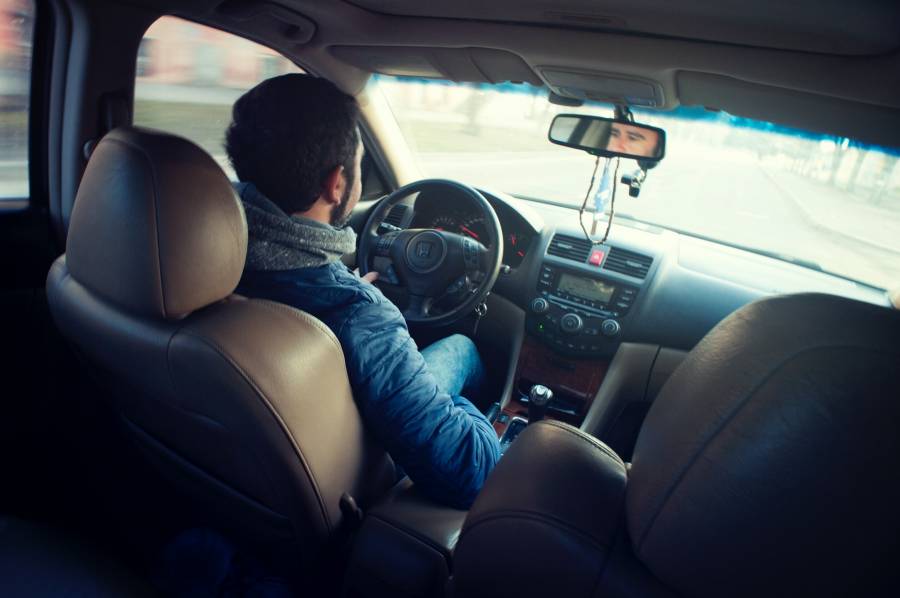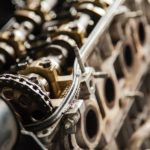Quick Navigation
This high-pitched squealing noise from the engine is a cause of distress to the driver and is a sign that the vehicle needs to be checked thoroughly.

You may have to go to a technician about this problem. Still, eloquent knowledge in identifying the problem and its solution on your own will help you a lot.
Several reasons may have caused the squealing of the engine. In this article, we will be looking at some of the causes of the engine’s squealing noise and how to fix them.
Engine Squealing Noise – 9 Causes
1. Worn Of The Serpentine Belt Or Drive Belt
The drive belt plays an essential part in the working of the engine. The belt operates main engine components, including an alternator and power steering pump.
Thus, when a drive belt becomes faulty, the rest of the features stop functioning. These belts are manufactured to last a thousand miles.
The belt usually squeaks when a car accelerates for the startup or makes a U-turn.
The belt’s rubber may become splintery and rupture over time, resulting in the engine’s screeching, creaking, and squealing while driving.
If there is any oil seepage in the engine, that can also cause squeaks as the oil covers and glazes the belt causing it to slip and squeal.
Replacing it with a new belt is the quickest and easiest way to go, and a mechanic can do this for you quickly.
2. Worn Down Brake Pads
If your car starts squealing when pressing the brakes, then it’s most likely to be a brake issue rather than a belt.
If you hear a squealing noise when hitting the brakes, it probably means the brakes need a maintenance check. The noise might come when hitting the brakes at a certain speed.
Do not wait for the noises to dissipate, or you might also destroy the rotors. The screeching and squealing noise will recede with brakes replacement.
Here are some other causes that may result in your engine squealing and squeaking.
3. Faulty Belt Pulleys
If the belt is not accountable for the squeaking noise, then the belt pulley must be the one causing all the trouble.
When damaged even the slightest, these parts can cause a loud noise, as these parts spin at maximum speed when the engine is running.
A worn-out belt pulley commonly requires a renewal to function silently and adequately.
4. Erroneous Belt Tensioners
Old cars required manual adjustment of the belt tensioner. The belt has to stretch to place the correct amount of tension for the other components to run smoothly.
Modern cars of this era have an automatic belt tensioning feature. After some time, these belt tensioners start to wear out, causing the creaking, squealing noise.
If the belt and pulleys are functioning well, there could be a problem with the tensioner, and you will need to get it replaced to stop the whining and rattling noise.
5. Foible Alternator
The belt-driven alternator is mainly found under the hood of most cars which wear off over time.
Its purpose is to transform engine energy into utilizable electricity for the car’s numerous electronic components and recharge its battery.
If the insides of the belt show signs of wear and are not replaced in time, this will cause the alternator’s bearings to senile and wear out, leading to a high pitch squeal.
Any wire placed improperly also leads to the whining by the alternator to be heard through the stereo.
If you do not get it replaced or repaired in time, this will make your car power-less any time, so to avoid any misshape, get it fixed when you first realize the noise could be related to the belt-driven alternator.
6. Complications With Power Steering System
The serpentine belt in modern vehicles drives the steering system. If the squealing is relatively high when making a turn, it may be because of a fault in the belt.
If the belt fails to work, you will lose control of the steering system, which will make it quite a task to turn the steering wheel.
If you’re driving at a busy road or a higher speed, it can be hazardous and a safety hazard.
There are various reasons why the steering wheel makes high-pitched noises. Some of the very regular ones are:
- Insufficiency of steering fluid
- Impure fluid
- Lack of lubrication
- Worn off steering components
7. Overheated Engine
The serpentine belt powers the water pump that plays a vital role in the engine’s cooling. If the belt fails, the car starts hissing and is more likely to overheat.
It happens because the engine coolant has reached its boiling point and that hiss or whistle comes from the excess pressure breaking lose.
The high-pitched hissing sound indicates you to be careful under the hood, as touching the radiator cap will give you severe burns.
Professionals should handle this issue as it’s a little complicated.
8. The Fall In Of The Clutch
If your car makes a screeching noise while shifting the gears, there must be some trouble with the car’s clutch, as the clutch is responsible for transmitting power from the engine to the transmission.
The friction discs let the engine spin freely without connecting to the transmission and vice versa. The clutch may have failed if the car creates squeaky noises and does not accelerate.
You can find that out by checking the temperature of the tires.
If the tires are heated up, the brakes have an issue. If the tires are not heated, then the clutch is to blame.
9. Fuel Quality
The clinking or rattling sound from the engine when accelerating indicates some problem. Engine noise is commonly caused by poor-quality fuel or wrong fuel being used.
Ask a technician to inspect the vehicle right away as he will guide whether it’s an internal issue or will be sorted out with minor adjustments.
Ways To Prevent Your Engine From Squealing
Engines require a regular checkup. It’s better to keep them in a running state if regular maintenance is done.
To prevent the engine from creating severe issues, we have gathered solutions to protect your engine.
1. Consistent Speed Levels
The engine runs much better and operates for a more extended period if it runs smoothly at a continuous speed. It starts to wear down if it starts and stops every other minute.
Continuous stops and starts are bad for a car’s engine. If the engine runs at a constant speed, it gives more mileage, and the lesser the engine has to work.
2. Regular Oil Change
Consistent changing of oil is one of the most critical factors you have to do to maintain your engine.
The essential parts of the engine need to be well lubricated so that they don’t overheat. An engine’s oil must be changed now and then.
If it is not changed for a long time, it will permanently damage the engine. Some engines can go longer without a change, while some cars require an early oil change.
Make sure you look up to what your car maker advises for your vehicle’s oil change interim.
3. The Cooling System
The cooling system comprises a radiator, water pump, thermostat, and coolant.
The simplest way to safeguard your engine from overheating and making those squealing noises is by keeping a check on the proper amount of radiator fluid moving throughout the engine.
If you notice your car getting heated up, immediately take your car to a mechanic and have them run a thorough check on the cooling system.
4. Regular Leakage Check
Oil and antifreeze are two primary fluids that you must ensure aren’t leaking. You don’t need to see it; you can smell them if there is any leak.
It’s better to check your car for leakage now and then to prevent yourself from a significant problem.
Closure
Many Car engine problems you can handle without any technical help. Though some require professional help, they do burden you with finances.
In many cases, the serpentine belt is the reason behind your engine’s squealing; therefore, replace it when you start hearing such noises without any further delay.
We hope that this article provided you with all clarifications you were trying to figure out why your engine is making those uncomfortable squealing noises.

Kevin has been hanging around cars and automobile magazines since he knew what a car is. He grew up in his father’s 1995 Mercedes E320 Wagon and Volkwagon Phaeton W12 2004. He rides his first car, a manual 1979 Porche 911SC.
Currently, he owns an Acura Integra GS-R. During his childhood, he showed a keen interest in how things actually work and fix them. This passion transforms into his eternal love for cars and bestows him an ideal position in one of the leading automobile companies; whenever he finds time, he takes out his Acura and opts for the longest possible route to find hidden wholesome pleasure in a road trip.
Want to read some of the articles written by Kevin? Head to our blog section to find out all the articles written by Kevin.







